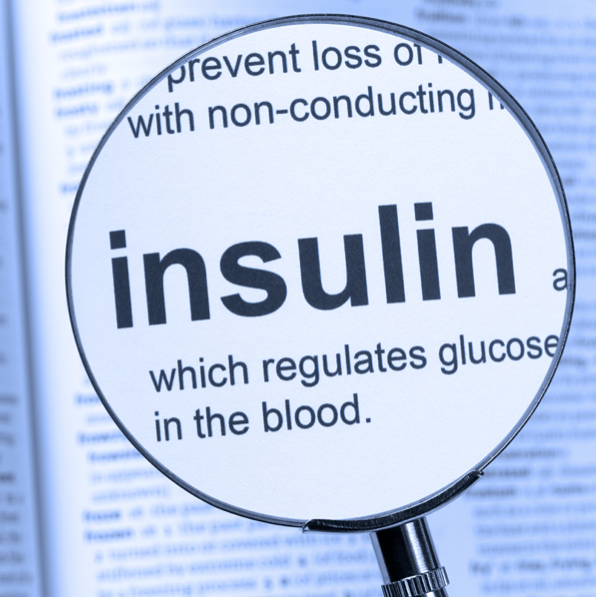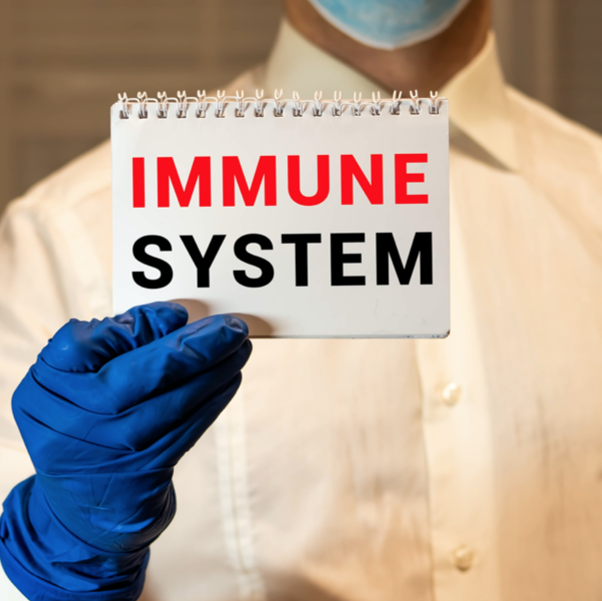- Fast results
- 4,000+ locations
- 4.8 star rating
Need Help? (888) GET LABS


This article is Medically Approved ✓ by Dr. Edward Salko
Vitamin D is produced in the skin as a response to sunlight exposure, so it’s not surprising it has been dubbed the “sunshine vitamin,” and some people even refer to it as the “wonder vitamin.”
But there’s more to the production of this often-neglected vitamin than just a mere bodily response. The benefits of vitamin D range from strengthening immune defenses to suppressing the expression of genes linked to cancer development, while vitamin D deficiency can lead to bone disease such as rickets.
If you have sporadic exposure outside or if sunlight is limited in your area, perhaps it’s about time to have a vitamin D blood test.
With many kinds of dietary supplements available, it’s not unusual to overlook vitamin D on the shelves. While most people often go directly for vitamin C and folates, you shouldn’t neglect vitamin D supplements as this micronutrient’s essential functions in the body are undeniable.
Vitamin D is a fat-soluble micronutrient, which means it can be acquired and processed from fatty foods. But vitamin D is technically not a vitamin; it’s a precursor of a hormone and is sometimes referred to as calciferol.
Vitamin D is vital for health for the following reasons:

Vitamin D plays an essential role in regulating calcium and phosphorus in the blood, and a sufficient amount of it allows the absorption of these two vital minerals from food in the intestine.
It also maintains the reabsorption of calcium and minerals in the kidneys before they’re mistakenly excreted. In addition, vitamin D promotes mineralization that keeps teeth and bones strong and protected from degradation.

This may come as a surprise, but having enough vitamin D in your system can promote weight loss. There’s evidence suggesting a correlation between vitamin D deficiency, higher body mass index, and fat percentage.
A randomized controlled trial showed that women who took vitamin D supplements for 12 weeks lost more weight than those who didn’t take them. Another study provided insights into how vitamin D can potentially decrease the formation of new fat cells.
The results support previous claims that vitamin D can decrease body fat.

Over the years, vitamin D deficiency has been linked to cardiovascular disease, cancer, and diabetes. Interest in this has increased since studies have shown the relevance of sufficient vitamin D in insulin production.
One study showed that supplementing with vitamin D and calcium can optimize glucose metabolism. On the contrary, insufficient vitamin D and calcium inhibit glycemic control.

Vitamin D is essential in strengthening your first line of protection against diseases and infection. It has properties that trigger immune system defenses, such as activating and improving the function of immune cells.
In most cases, respiratory infections such as cold and flu are reduced with sufficient vitamin D.

Pregnant women need more vitamin D, and a lack of it can influence maternal conditions such as hyperparathyroidism, gestational diabetes mellitus, and pre-eclampsia.
It also increases the risk of low birth weight, delayed ossification, and enlarged cranial size for fetuses.

Studies have uncovered a connection between low vitamin D levels and depression.
It’s believed that vitamin D influences healthy brain function and prevents the development of mental illnesses.
Vitamin D deficiency is considered a global issue.
With about 1 billion people suffering from this condition, many don’t realize they’re deficient in vitamin D until it’s too late, and prevalence is higher among the elderly and obese.
If you consider the significance of vitamin D in metabolism, it won’t come as a surprise that the lack of this micronutrient can result in severe medical conditions.
1. Oral Health Disorder
Research shows that vitamin D deficiency leads to disorders such as gingival inflammation, cavities, dental decay, gum disease, and other enamel defects.
A lack of vitamin D can lead to teeth that can easily chip and crack.
2. Poor Bone Health
A critical effect of vitamin D deficiency is a loss of bone density, as it plays a vital role in the absorption of calcium and phosphorus, both of which are essential for bone mineralization.
When there’s insufficient vitamin D, processing calcium is hard work for the parathyroid gland, forcing it to derive calcium from the bones. This leads to bone disorders like osteoporosis and fractures.
3. Osteomalacia
Severe vitamin D deficiency leads to a condition known as osteomalacia. It causes bone pain as well as bone and muscle weakness in adults.
Treating osteomalacia begins with increased supplementation of vitamin D.
4. Rickets
Rickets is a condition that weakens and softens the bones of children, and the most common cause is vitamin D deficiency.
The complications of rickets include skeletal deformities, abnormally curved spine, seizures, growth issues, and dental defects.
5. Hypocalcemia
Vitamin D deficiency influences the development of hypocalcemia, a condition characterized by low calcium in the blood.
It’s not exactly a life-threatening condition, especially if the cause is correctly identified. But it could contribute to the development of other health issues, such as osteoporosis, kidney failure, and arrhythmia.
6. Increased Vulnerability Against Diseases
Several studies support the role of vitamin D in strengthening the immune system. So insufficient vitamin D can be linked to immune disorders and other forms of infections, like tuberculosis, pulmonary diseases, asthma and influenza.
A global study published by the BMJ and reported by The Harvard Gazette supports the relationship between vitamin D deficiency and the development of respiratory infections. It shows that taking vitamin D supplements daily or weekly can reduce the chance of infection by half.
Furthermore, developing research shows a connection between sufficient vitamin D in the bloodstream and minimal adverse effects of COVID-19 in infected individuals. While there is a correlation, the research does not directly suggest causation, and more clinical trials and studies are expected to confirm this finding.
Many people are not aware that they have vitamin D deficiency because the signs are subtle or completely absent. These are some common vitamin D deficiency symptoms:
· Fatigue
· Back pain
· Hair loss
· Bone loss and pain
· Muscle weakness
· Depression
The stimulation of vitamin D depends on the amount of exposure you have to sunshine. When your skin receives sunlight, vitamin D is synthesized from cholesterol, and vitamin D is also absorbed from certain foods.
According to the National Institutes of Health, the recommended daily intake of dietary vitamin D is between 400 to 800 IU or 10 to 20 micrograms. It depends on your age, with 15 micrograms the average suggested consumption.
While vitamin D supplements help with deficiency, it’s advisable to include foods high in vitamin D in your diet. These are some foods that are high in vitamin D:
1. Fatty Fish
A great source of vitamin D is fatty fish, which has about 200 to 500 IU of the vitamin.
Salmon notably has a higher vitamin D concentration, around 526 IU, making it an ideal meal for vitamin D deficiency. Other fatty fish include tuna, herring, and sardines.
2. Cod Liver Oil
Cod liver oil comes from the liver of Atlantic cod. It’s not only high in vitamin D but vitamin A as well. You can get about 448 IU of vitamin D from a single teaspoon of cod liver oil.
3. Egg Yolks
With 218 IU of vitamin D, you can never go wrong with egg yolks, especially if you’re not exactly a fan of fish.
Chickens bred in farms with consistent sunlight exposure or are given feeds enriched with vitamin d have even higher vitamin D concentrations.
4. Mushrooms
Earthy, flavorful, and nutrient-rich — that’s how mushrooms are perceived. They’re not simply culinary essentials but are great for vitamin D deficiency.
Shiitake mushrooms, for example, have 100 IU per 2.5 oz.
If you’re vegan or vegetarian, including mushrooms in your diet can supplement the lack of fatty meat that provides vitamin D.
5. Fortified Foods
Since natural foods high in vitamin D are limited in the market, manufacturers fortify certain products with the micronutrient.
They include soy milk, orange juice, regular cow’s milk, cereals, and oatmeal.
How Do You Test for Vitamin D Deficiency?
If you experience low vitamin D symptoms or have limited sources of this micronutrient, you really can’t check for it at home because you need to have a vitamin D blood test.
The most accurate method of measuring vitamin D levels is with a 25-hydroxy vitamin D blood test, which you can order via Personalabs if you want efficient and convenient testing. Simply create an account and place your order, and you’ll soon be tested and have your vitamin D 25 hydroxy blood test results.
But if you have vitamin D deficiency symptoms that are severe, it’s best to see your doctor immediately.
Sufficient vitamin D in your system is more important than you think. It performs several of the most critical functions in the body. Likewise, low vitamin D can lead to health complications that could be life-threatening if not addressed quickly.
So it’s imperative to enrich your diet with foods high in vitamin D or add supplementation if necessary. And it’s crucial to check your level of vitamin D with the right blood test.
Order a vitamin D blood test and other vitamin and nutrition tests today and find out what your level is so you can take supplements if required. Contact Personalabs if you have any questions about this or any other blood test.

© Copyright 2025 Personalabs. All Rights Reserved.